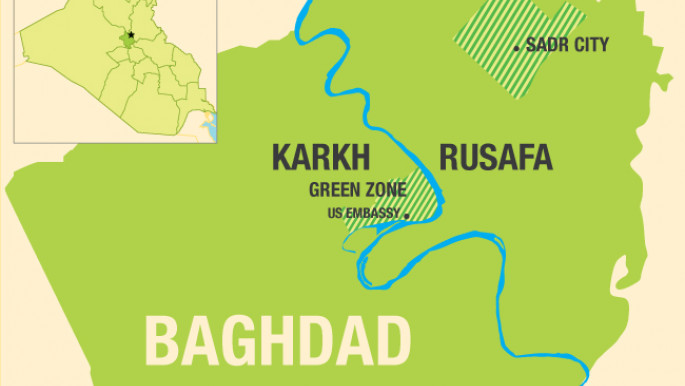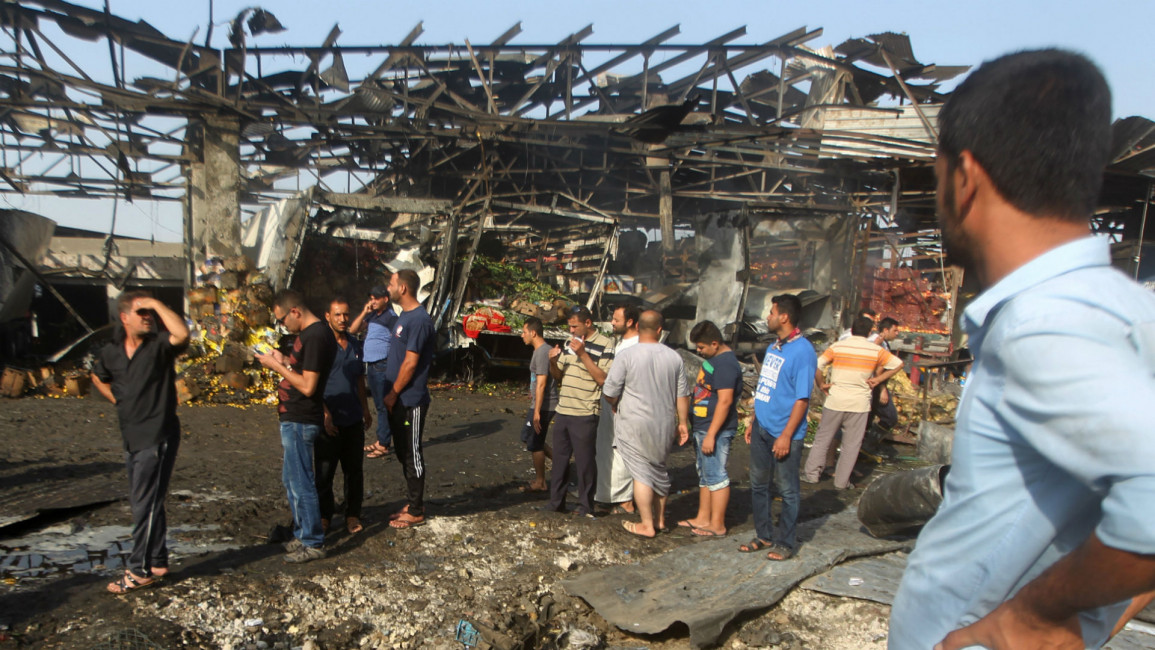Truck bomb in Baghdad kills scores of civilians
A truck bomb ripped through a market in a Shia-majority area of Baghdad on Thursday, killing at least 58 people, security and medical officials said.
The truck detonated in the Jameela market in the Iraqi capital's crowded Sadr City shortly after dawn, according to two local police officers.
They also said that at least 89 people were wounded in the attack.
 |
|
The Islamic State extremist group claimed responsibility for the attack. The group said in an online statement that it carried out the "blessed operation" in Sadr City, which devastated a major wholesale vegetable market.
Residents of the Shia community rushed to help the victims, carrying corpses in garbage bags and sending the wounded to local hospitals in ambulances or in personal cars.
The blast incinerated much of the market, leaving charred wooden market stalls and scattering fruits and vegetables far around it.
Fire trucks and ambulances rushed to the scene and fire men were dousing the complex with water long after the explosion.
"On Thursdays the market is especially crowded because people come from the other provinces to stock up on food for the weekend," one of the officers said.
He said the truck that set off the explosion was a refrigeration truck, so it was impossible to distinguish it from other trucks delivering produce to the market.
Four hospital officials confirmed the casualty figures. All officials spoke on condition of anonymity because they are not authorised to speak to the media.
While near-daily attacks are common in the capital, death tolls have rarely reached this level for a single attack since the height of the country's brutal sectarian bloodletting in 2006 and 2007.
The Islamic State militant group currently holds territory in about a third of Iraq. They view Shia Muslims, as well as other religious minorities, as apostates.
When they launched their major onslaught across northern Iraq last year, they vowed to continue on to Baghdad. But a mobilisation of volunteer Shia fighters deterred any significant attacks on the capital.



